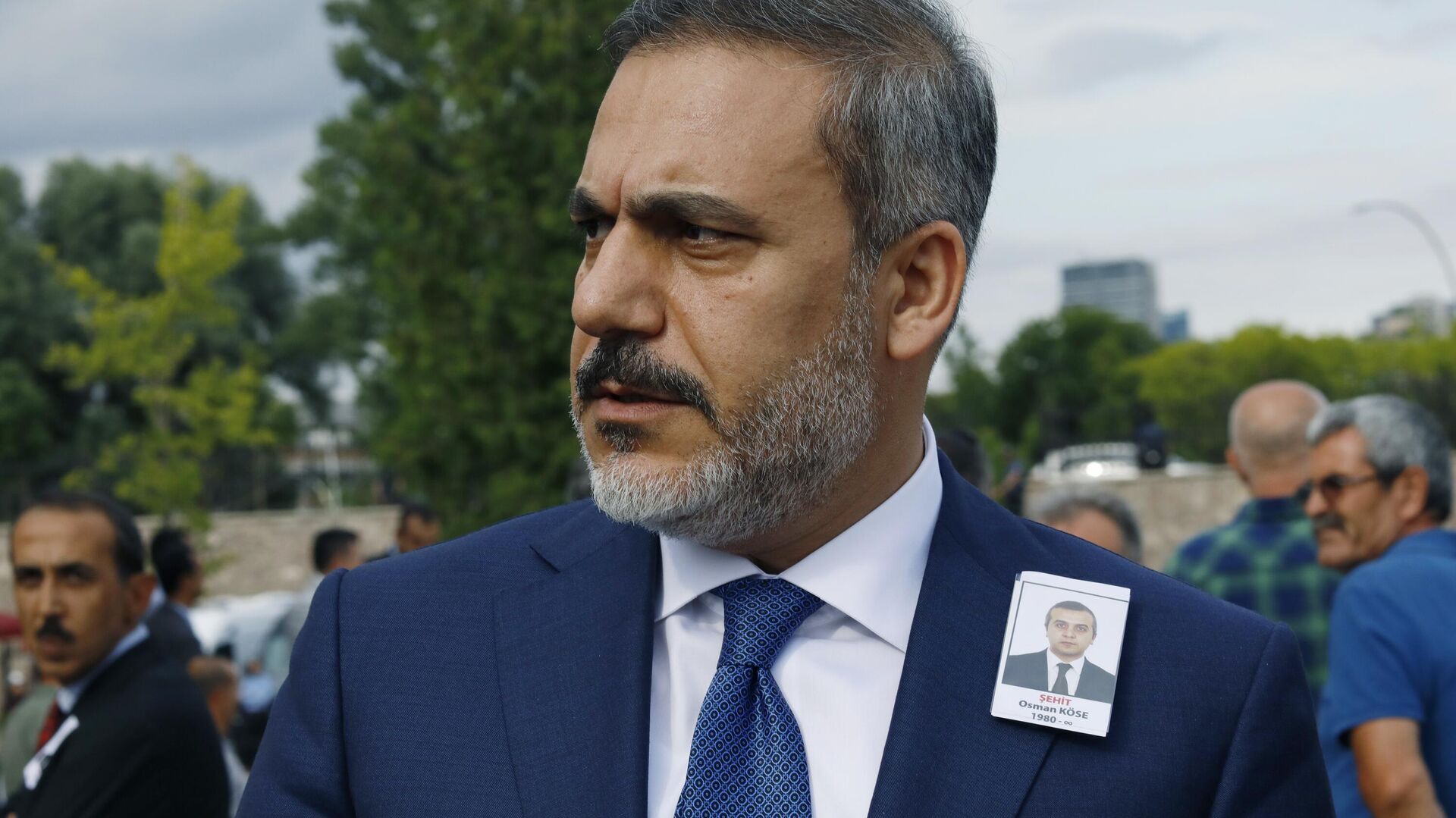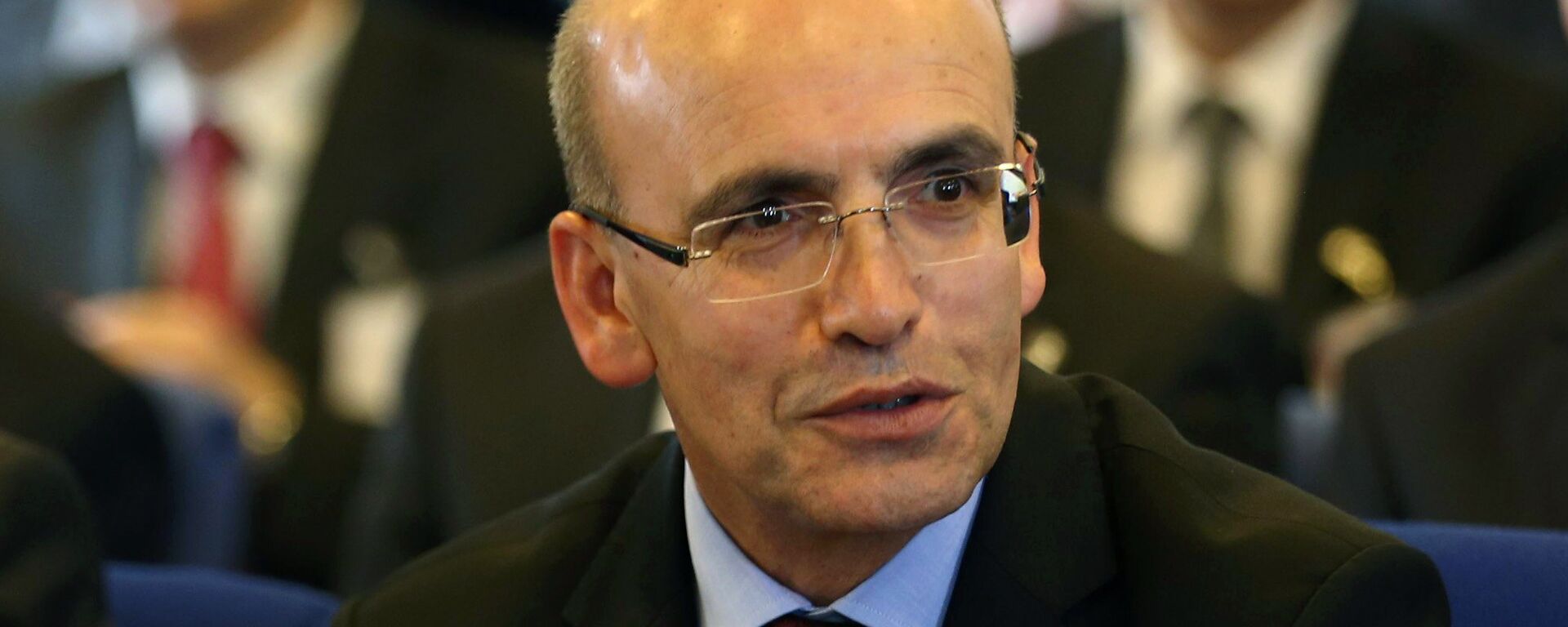No ‘Sharp Turns’ in Turkiye’s Foreign Policy Under New FM Hakan Fidan, But Arab Rapprochement Likely

© AP Photo / Burhan Ozbilici
Subscribe
On Monday, Turkish President Recep Tayyip Erdogan reshuffled his cabinet in the wake of his election victory, elevating the former head of the Turkish National Intelligence Agency, Hakan Fidan, to head the foreign ministry.
The 54-year-old ran Turkiye’s spy agency for 13 years and is only the second foreign minister in modern Turkish history to have a military background.
Fidan told the Turkish Parliament on Tuesday that in his new post, he would “continue to improve our vision of national foreign policy, based on the sovereign will of our people and the independence of our state from all spheres of influence.”
“I do not expect any cardinal changes in the foreign policy line, since its main direction will continue to be determined by President Erdogan,” Faruk Loğoğlu, the former Turkish ambassador to the United States, told Sputnik. “I believe that, unlike Cavusoglu, who was distinguished by rather harsh rhetoric, we will see a softer, more moderate style of diplomacy with Fidan.”
According to insider reports, Fidan has been having backchannel talks with the governments of several Middle Eastern states in a bid to improve relations, including Syria, whose territory Turkish troops occupy in Idlib Governorate, and Israel, with which Ankara has sparred over its military operations in the Gaza Strip.
However, the former diplomat said that based on Fidan’s words before Parliament, “we can conclude that sharp turns in the foreign policy strategy should not be expected, and the policy of balance will continue, as well as the further strengthening of Turkiye's contacts with Russia, the countries of Central Asia and the Middle East.”
Ismail Hakki Pekin, the former head of the Intelligence Directorate of the General Staff of the Turkish Armed Forces, told Sputnik that Fidan will immediately face a number of important regional issues, for which he will have to think in a new way - strategic, rather than tactical.
“Hakan Fidan, while still being the head of the intelligence service, has actively participated in the discussion of key foreign policy issues. In particular, negotiations on the Syrian issue were initially conducted by representatives of the intelligence services, and only after that the foreign ministries joined the process,” Pekin noted. “Fidan participated in negotiations with the Americans, Russians, [in] the Armenian-Azerbaijani conflict, the Libyan crisis - all these issues are in the immediate attention of the new foreign minister.”
“Turkiye faces a number of significant foreign policy tasks in the new period. And if earlier Hakan Fidan mainly solved tactical tasks in his activities, now he has found himself in the position of a strategic coordinator,” the former intel director said.
“In the near future, we can see the development of the situation in the Caucasus, important breakthroughs are coming in the Syrian direction, as well as on the Libyan issue. The rapprochement with Egypt will continue, and progress on the situation in the Eastern Mediterranean is possible.”
“I believe that Turkiye will pursue an even more active foreign policy, seeking to increase its influence in the Black Sea region, over the Ukrainian crisis, as well as in relations with the United States,” Pekin said.


